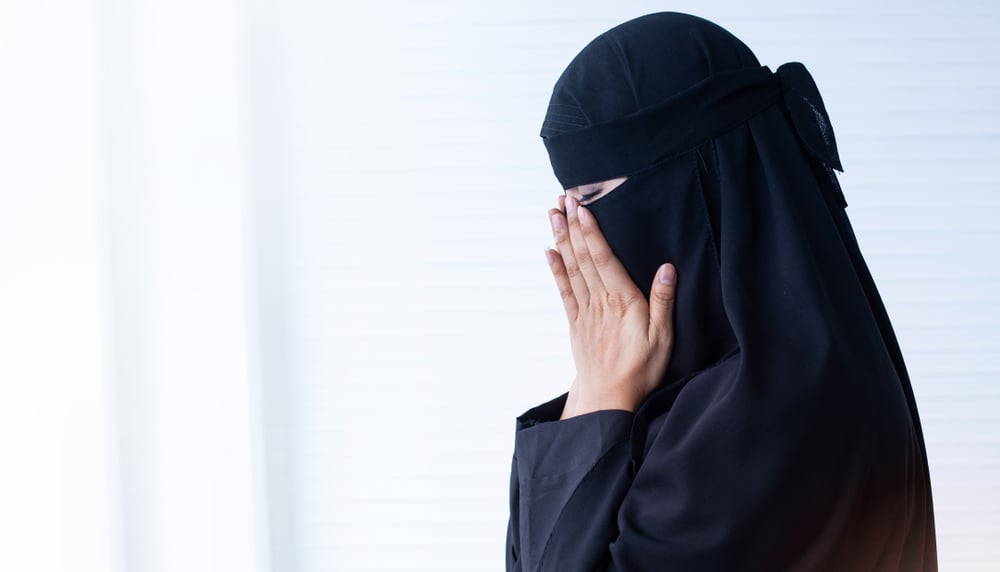Do I Have to Forgive the Man Who Abused Me as a Child?
Answered by Ustadha Shazia Ahmad
Question
I was harassed as a child, and I don’t want to forgive the man who did it. I’ve heard that I can’t hold a grudge if I was at fault, too, and I wasn’t wearing a hijab at the time. Can I still seek justice against him on the Day of Judgment?
Answer
Thank you for your question. I empathize with your suffering and pray Allah compensates you with love, compassion, and mercy for all you have gone through and fills your heart with closeness to Him. You can seek justice against the man in the hereafter.
Justice
Allah Most High has told us in the Quran, “So whoever does an atom’s weight of good will see it. And whoever does an atom’s weight of evil will see it.” [Quran, 99:7-8]
And Allah Most High has told us in the Quran, “And guard yourselves against the Day when no soul will be of any help to another. No ransom will be taken, no intercession accepted, and no help will be given.” [Quran, 2:123]
There is no question that Allah can take this person to task on the Last Day, but I encourage you not to focus on this because healing from it is what matters most for you.
Healing
Your first focus is not revenge or forgiveness, rather it is healing your heart. Use regular prayer, dhikr, dua, and helping the needy as your tools. I also encourage you to seek a therapist, or counsellor or join a support group of survivors. Process the feelings, learn your triggers, and don’t take on a victimhood mentality. You can and will conquer this and it will not define you, by the grace of Allah.
Use some of these resources I found online:
7 Ways to Heal Your Childhood Trauma
Does Childhood Trauma Ever Go Away?
9 Steps to Healing Childhood Trauma as an Adult
Selected Prophetic Prayers for Spiritual, Physical and Emotional Wellbeing
Forgiveness
Allah, Most High, says in His holy book, “Do not let the people of virtue and affluence among you swear to suspend donations to their relatives, the needy, and the emigrants in the cause of Allah. Let them pardon and forgive. Do you not love to be forgiven by Allah? And Allah is All-Forgiving, Most Merciful. [Qur’an, 24:22]
The Prophet (Allah bless him and grant him peace) also said, “Neither nurse grudge, nor sever (the ties of kinship), nor nurse enmity.“ [Muslim]
We can see from this verse that there is some correlation between forgiving those who wronged us and being forgiven by Allah Most High on the Day of Judgment. Forgiveness is a high rank to achieve. The Prophet (Allah bless him and give him peace) had forgiven someone who murdered his beloved uncle Hamza and that is the noble sunna that we should emulate.
Forgiveness is a liberating feeling and allows you to enjoy the present and let go of the past. Keep this idea in mind for the future but please focus on the healing, and go through the process naturally and gradually.
Please see these links as well:
Am I Expected To Forgive the Man Who Sexually Abused Me as a Child Now That He Has Passed Away?
Should I Forgive My Father Who Sexually Abused My Children?
Is it Obligatory to Forgive Others? How to Deal with Abusive Family Members?
Forgive and Be Free: The Liberating Power of Forgiveness
May Allah give you the best of this world and the next.
[Ustadha] Shazia Ahmad
Checked and Approved by Shaykh Irshaad Sedick
Ustadha Shazia Ahmad lived in Damascus, Syria for two years where she studied aqida, fiqh, tajweed, tafsir, and Arabic. She then attended the University of Texas at Austin, where she completed her Masters in Arabic. Afterward, she moved to Amman, Jordan where she studied fiqh, Arabic, and other sciences. She later moved back to Mississauga, Canada, where she lives with her family.
